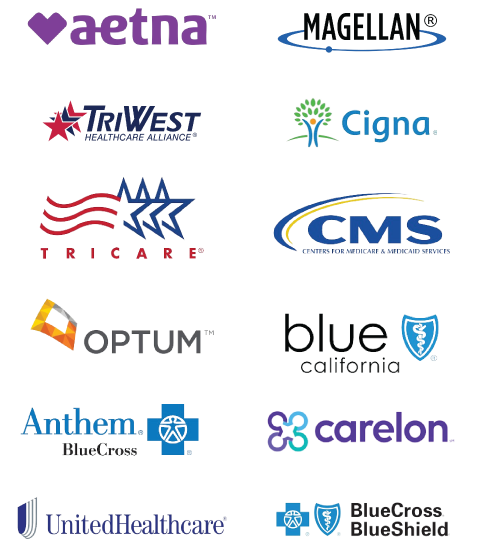
If you’re struggling with your mental health, managing yourself can be difficult. That becomes even more difficult when you’re faced with the responsibilities of a parent. Often that means taking on significant responsibilities which are challenging to people with good mental health. Balancing the needs of your mental health care and taking care of your children can require a considerable amount of work – especially as the stress of childcare can make your mental health worse.
For many of us, the primary goal is to be a good parent. That can make us put our own mental health on a back burner. Unfortunately, that often backfires, because worsening stress and mental health disorders reduce our ability to be a good parent. Learning how to manage your mental illness alongside parenting your kids is important for being able to be a good parent.
At Compassion Recovery, we understand that mental health and management have to interact with your life, your responsibilities, and your ability to have free time. Often, that means building a strategy around those concerns, so that you can continue to do the things you want and have to.
Assess Your Situation
It’s important that you be able to understand what you’re working with and what you have room for. That can mean understanding your energy levels, how often you’re severely impacted by your mental health, and your total obligations for childcare and home care. For example, if you keep a mental health diary for 3 weeks, you can get a better indication of how much time you spend feeling well versus feeling bad. That can give you insight into how to better budget your energy. Or, for example, if you know that you always have more energy at some points of the day, you can move heavier tasks and responsibilities into that period.
Understanding your total responsibilities is also an important part of managing those responsibilities around your mental health. For example, if you know which tasks are yours every day, how much and when you have kids every day, which days it might be important for you to do things with those kids, etc.
Basically, understanding your total responsibilities allows you to prioritize, to figure out what you absolutely have to do, and what you can drop if you don’t feel up to it.
Make a Strategy or Plan
Once you know what you’re dealing with, you can make a strategy around those responsibilities. Your strategy should incorporate:
- Your responsibilities
- Taking time out
- Coping with symptoms of mental health
Most importantly, it should do so in a way that allows you to be flexible with your time. You should also be able to prioritize tasks and responsibilities based on stress. For example, are there responsibilities that frequently are not done because you find them too stressful? Can you make those easier or make changes to reduce that impact?
For example, if you frequently struggle with getting kids to school on time, working out having a neighbor pick them up in exchange for something else might be an ideal solution. If you struggle with washing dishes and keeping up with meals, switching to simpler meals or meal prepping when you have the energy can help.
You won’t always be able to find workarounds, but you can try. And, you can take steps to reduce work or swap it with someone else where you can.

Use Childcare or Share Childcare Where You Can
During school periods, you will often have a considerable amount of time to yourself. At the same time, having kids every day can mean you lose sleep and that you don’t have time for self-care or therapy. Taking steps to invest in childcare or to create babysitting agreements with family or neighbors can go a long way towards ensuring you get breaks when you need them.
For example, if you agree to swap off childcare days with neighbors, where you take their kids some days and they take yours some others, you’re making time for yourself to have downtime, to go to therapy, or to get some extra sleep and recover. Parents and grandparents are also often more than happy to help out – if they live nearby.
While people often feel as though they have to take on childcare by themselves, that’s not the case. Historically people have relied on larger networks of friends and family to help with childcare. And, asking for that help is important if you’re already struggling to manage yourself.
Get Professional Help
Mental health problems are not always curable but you can often learn coping mechanisms, mitigation strategies, and ways to improve your mental health around your disorder. Often, that training can help you to be a better parent. And, many treatment centers offer family-based care, including babysitting or daycare while you’re in treatment.
For example, you can go to treatment specifically for your mental health disorder to learn how to cope with symptoms, how to mitigate side-effects, and how to reduce the impacts of the disorder on your mental health. You can go to therapy to learn emotional regulation to improve how you respond with anger, irritability, or being upset. You can learn stress reduction techniques like mindfulness to improve how you experience and respond to stress.
Any of these can help you to manage and deal with mental health problems alongside being a parent. In many cases, the correct answer is also that you need some of everything. Learning to manage your mental health problems won’t do as much if you’re constantly being triggered by noise, stress, and having to do things when you’re tired or anxious. Instead, learning life skills, habits, and stress management skills to reduce the impacts of those triggers, while you treat your mental health disorder, is more likely to be effective.
At Compassion Recovery, we understand that every person is different. Your mental health problems, coping mechanisms, triggers, and responsibilities are your own. Learning to manage your mental health and to cope with stress and triggers in your life is a completely personal thing. That’s why we build treatment programs around individual patients, working to deliver treatment and education to give you the tools to navigate your life.
If you or you loved one need help with mental health treatment, drug rehab, or alcohol rehab Compassion Recovery Center is here to help. Contact us to ask about our mental health programs and how we can support your specific requirements as you move into treatment.





